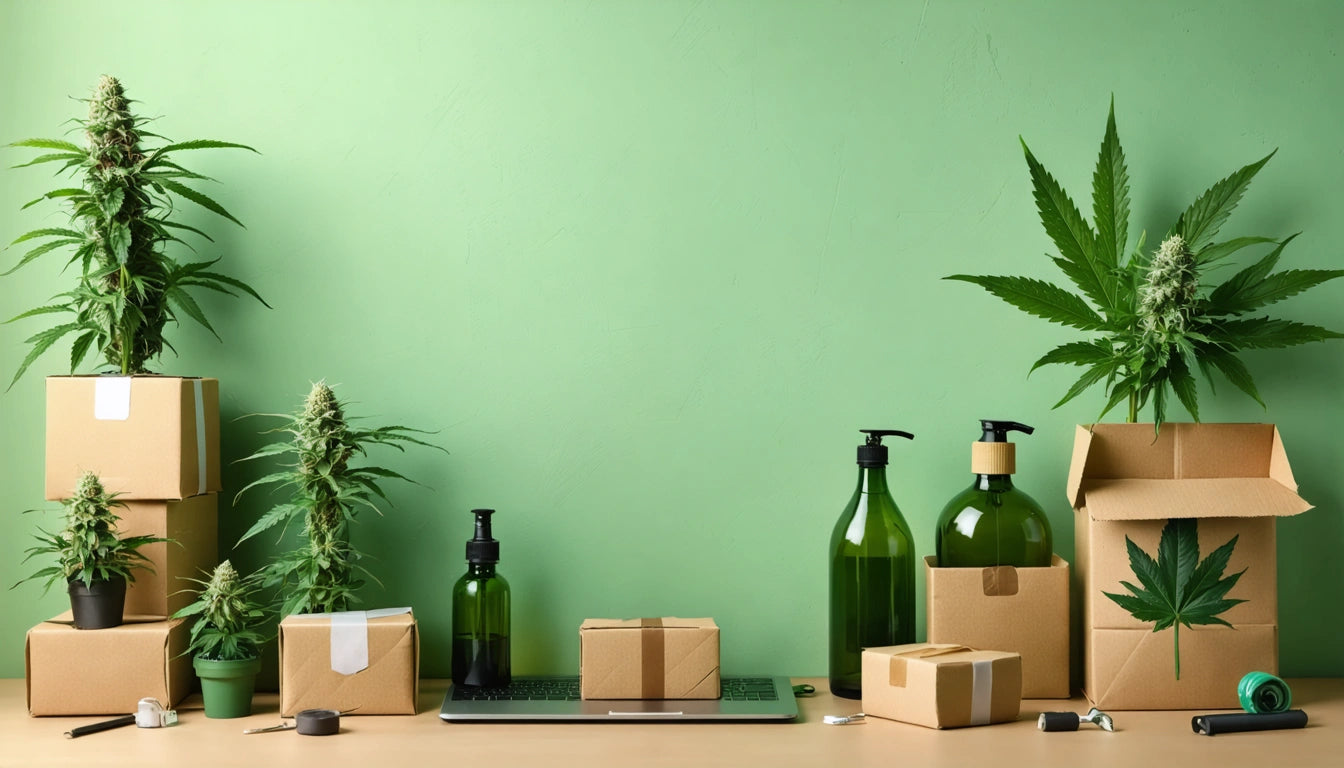Table of Contents
As the cannabis industry matures, sustainability has become a critical consideration for brands looking to reduce their environmental footprint while meeting consumer expectations. Eco-friendly flower packaging represents a significant opportunity to address both environmental concerns and market demands, particularly as consumers increasingly factor sustainability into their purchasing decisions.
The Importance of Sustainable Packaging in Cannabis
The cannabis industry faces unique packaging challenges, with regulations often requiring multiple layers of child-resistant and tamper-evident features. These requirements have historically led to excessive packaging that contradicts sustainability goals. However, as research on sustainable packaging solutions shows, brands can maintain compliance while reducing environmental impact.
Consumer demand is driving this shift, with recent market research indicating that over 70% of cannabis consumers consider environmental impact when making purchasing decisions. This trend is particularly strong among millennial and Gen Z consumers, who represent a growing segment of the cannabis market.
Eco-Friendly Materials for Cannabis Flower Packaging
Recyclable Options
Several recyclable materials have proven effective for cannabis flower packaging:
- Glass jars: Infinitely recyclable and excellent for preserving terpenes and cannabinoids. The debate between glass jars versus mylar bags often centers on sustainability versus convenience.
- Tin containers: Recyclable and provide good protection against light degradation.
- Recyclable plastics: Some plastics, particularly PET and HDPE (recycling codes #1 and #2), are widely accepted in municipal recycling programs.
Biodegradable and Compostable Materials
Newer materials entering the market include:
- Hemp-based plastics: Created from cannabis industry byproducts, offering a circular economy solution.
- PLA (polylactic acid): Plant-based and compostable under industrial conditions.
- Mushroom packaging: Mycelium-based materials that can be home composted.
Balancing Sustainability with Product Freshness
A primary concern with eco-friendly packaging is maintaining product quality. Cannabis flower requires packaging that protects against moisture, light, and oxygen exposure to preserve potency and terpene profiles. Proper terpene preservation remains essential even with sustainable materials.
Innovative solutions include:
- Compostable barrier films with effective oxygen and moisture barriers
- Recyclable glass with UV protection coatings
- Integration of plant-based humidity control packs
These technologies address cannabis flower degradation concerns while maintaining eco-friendly credentials.
Compliance Considerations for Sustainable Packaging
Sustainable packaging must still meet regulatory requirements, including:
- Child-resistance features
- Tamper-evidence
- Proper labeling for THC content and warnings
- State-specific requirements
Many sustainable options now incorporate compliant features. For example, glass jars with certified child-resistant lids meet both sustainability and regulatory goals. Understanding state-specific packaging requirements is crucial when implementing eco-friendly solutions.
Implementation Strategies for Eco-Friendly Packaging
Transitioning to sustainable packaging requires strategic planning:
Phased Approach
Rather than overhauling all packaging at once, consider:
- Starting with one product line to test market response
- Replacing the least sustainable components first
- Gradually transitioning as contracts with current suppliers expire
Consumer Education
Educating consumers about your sustainability efforts can increase brand loyalty and justify any premium pricing. Include information about:
- Material sourcing and environmental benefits
- Proper disposal or recycling instructions
- Your brand's broader sustainability commitments
Supply Chain Considerations
A truly sustainable approach considers the entire lifecycle:
- Sourcing materials from local suppliers when possible to reduce transportation emissions
- Evaluating manufacturing processes for energy efficiency
- Considering end-of-life scenarios for all packaging components
Future of Sustainable Cannabis Packaging
The cannabis industry is uniquely positioned to lead in sustainable packaging innovation. As regulations evolve and new materials emerge, we can expect to see:
- Greater integration of recycled and upcycled materials
- Packaging designed for circular economy models
- Regulatory frameworks that incentivize sustainability
- Consumer-driven demand for minimal, environmentally responsible packaging
Brands that proactively adopt sustainable packaging solutions not only reduce their environmental impact but also position themselves favorably with increasingly eco-conscious consumers. The initial investment in sustainable packaging often yields returns through enhanced brand perception, customer loyalty, and preparation for future regulatory changes.











Leave a comment
All comments are moderated before being published.
This site is protected by hCaptcha and the hCaptcha Privacy Policy and Terms of Service apply.